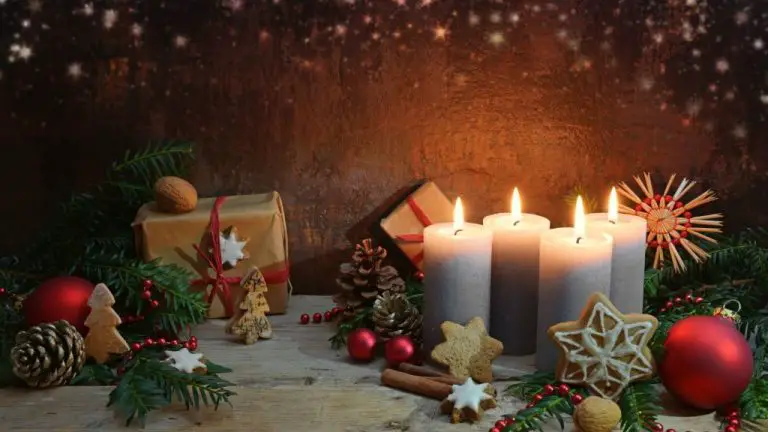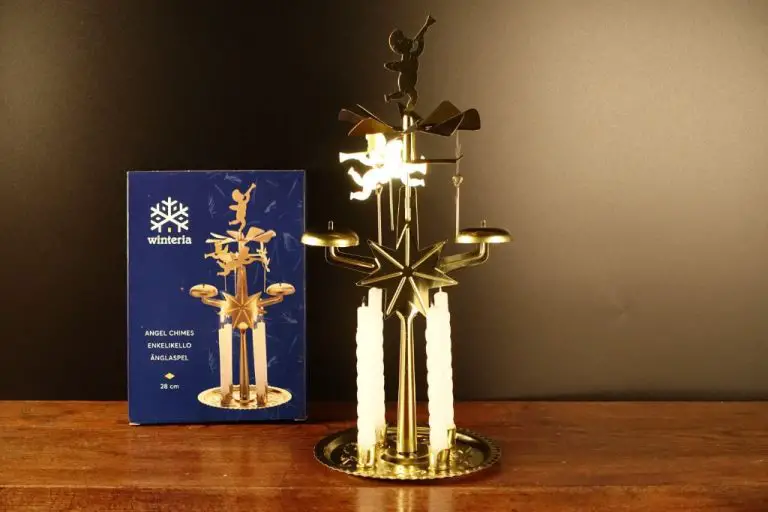In Which Festival Do We Light Candles?
Brief Introduction to Diwali, the Festival of Lights
Diwali, also known as the Festival of Lights, is one of the most celebrated and widely recognized Hindu festivals. It symbolizes the spiritual victory of light over darkness, good over evil, and knowledge over ignorance. The festival is celebrated for five consecutive days every autumn in the northern hemisphere, usually in October or November. Diwali has great religious significance in Hinduism as it marks the triumphant homecoming of Lord Rama after his 14 year exile. It also commemorates the return of Pandavas after 12 years of Vanvas and one year of agyatavas in Mahabharata. The festival is celebrated by lighting diyas and candles, worshipping deities, bursting firecrackers, exchanging gifts with loved ones, cleaning and decorating homes with rangolis, sharing festive sweets and savories, and more. Diwali celebrations epitomize the spirit of joy, happiness, knowledge and hope.
History and Origins
Diwali, the festival of lights, has been celebrated in India for centuries. The origin of Diwali traces back to ancient times and is associated with a number of myths and legends.
One of the most popular stories associated with Diwali is the legend of Lord Rama and his return to his kingdom Ayodhya after a 14 year exile. According to the epic Ramayana, it is said that the people of Ayodhya lit up the kingdom with earthen lamps called ‘diyas’ to celebrate the return of their beloved prince Rama after his victory over the demon king Ravana in Lanka.
Some scholars suggest that Diwali may have originated as a harvest festival in ancient India, marking the beginning of the Hindu new year. Agricultural societies would hold celebrations and perform rituals for a successful harvest season and the new year. Over time, these customs and rituals may have developed into Diwali.
Historians have also traced the origin of Diwali to significant events in Indian history. Some connects it with the return of the Pandavas after 12 years of exile in the Mahabharata. Others associate it with the victory of Krishna over the demon Narakasura. Another story links it with the start of Vikram Samvat, following King Vikramaditya’s coronation.
Regardless of the various origin myths, Diwali has come to represent the spiritual victory of light over darkness, good over evil, and knowledge over ignorance. The lighting of lamps and firecrackers is now an integral part of celebrating the festival.
Timing
Diwali takes place every autumn in the northern hemisphere, usually in October or November. The specific date is determined by the Hindu lunisolar calendar and varies from year to year.
Diwali is celebrated on the 15th day of the Hindu month of Kartika, which typically falls in late October or November in the Gregorian calendar. The exact date is set according to the new moon, known as Amavasya. Diwali festivities begin two days before Amavasya, on Dhanteras, and extend two days after, concluding on Bhai Dooj.
So the date range for Diwali shifts each year, based on the lunar calendar, but it’s always in the middle of the month of Kartika. Most years it falls sometime between mid-October and mid-November on the Gregorian calendar. The festival celebrates the victory of light over darkness and good over evil, coinciding with the Hindu new year.
Traditions and Celebrations
Diwali is associated with many traditions and festive celebrations. Some of the most common rituals and customs include:
Lighting oil lamps (diyas) – Clay lamps filled with oil are lit and placed around homes, temples and buildings to signify the triumph of light over darkness and good over evil. Diwali is also known as the “festival of lights” for this reason.
Fireworks – Firecracker displays are a major part of Diwali celebrations. Fireworks are set off at night to celebrate the festivities.
Prayer rituals – Many Hindus say prayers, perform pujas and make offerings to gods and goddesses like Lakshmi, Ganesha and Rama. Special Diwali puja ceremonies take place at temples, businesses and homes.
Diwali feast – Elaborate feasts and family dinners are prepared. Some signature Diwali food include sweets like gulab jamun, barfi and rasgulla, along with various savory dishes and snacks.
Cleaning and decorating homes – Before Diwali, houses are cleaned from top to bottom and decorated with colorful rangolis, marigold flowers, and oil lamps. It symbolizes a new beginning.
Exchange of gifts – Friends and families exchange gifts and sweets during Diwali. It’s a tradition associated with enhancing relationships and strengthening bonds.
Lighting Lamps and Candles
One of the most iconic traditions of Diwali is the lighting of lamps and candles throughout homes, temples, and streets. This tradition holds great significance related to the underlying spiritual meaning of the holiday.
Lamps and candles are lit to signify victory of light over darkness, good over evil, and hope over despair. As the day marks Lord Rama’s return to his kingdom Ayodhya after a 14 year exile, Diwali celebrates the triumph of good over evil after Rama defeated Ravana. Lighting lamps recalls Rama’s return, marking the end of a period of darkness.
In addition, Hindus believe that the light of lamps ushers in prosperity and joy. During Diwali, the goddess Lakshmi is worshipped as she symbolizes wealth and fortune. The lamps welcome Lakshmi into homes and lives. The rows of glowing lamps also represent knowledge and enlightenment dispelling ignorance.
On the night of Diwali, countless flickering lamps can seen adorning buildings, homes, and streets. This ethereal vision of myriad lamps celebrates knowledge, light, and hope. The lamps signify the inner light that overpowers spiritual darkness.
Fireworks
Fireworks play a major role in Diwali festivities. The lights, sounds, and colors of fireworks are believed to represent joy and the victory of light over darkness. For many, fireworks have become one of the most exciting and fun parts of Diwali.
Fireworks displays reach a crescendo on the night of Diwali. People light small firecrackers as well as large artistic fireworks known as pataka. Some areas host professional fireworks shows for the community to enjoy. The fireworks contribute feelings of celebration, happiness, and hope.
However, there are also safety concerns surrounding fireworks use. Improper handling and irresponsible usage can lead to injuries and damage. Many advocate for more organized fireworks displays rather than individual use of firecrackers. There are also environmental impacts in terms of air and noise pollution. But proponents argue the cultural significance and role of fireworks in Diwali is important to consider.
Cleaning and Decorations
In the weeks leading up to Diwali, people undertake a major cleaning and decluttering of their homes. This symbolic act signifies sweeping away any ill-fortune and making way for prosperity and good luck for the new year.
Houses are thoroughly cleaned from top to bottom – walls are scrubbed, carpets washed, and furniture polished to a shine. Many people will also repaint or whitewash their homes and entrances. It is believed that Lakshmi, the goddess of wealth, only enters clean and beautifully decorated homes.
After the deep cleansing ritual, homes are lavishly decorated with fresh flowers and elaborate rangolis at the entrances. Rangolis are ornate designs made from colored rice, flower petals, sand or chalk. Intricate patterns and auspicious symbols are created to welcome Lakshmi. Clay lamps are also arranged around the house and filled with oil or ghee to prepare for the evening candle lighting.
The cleaning and decoration traditions of Diwali signify a fresh start and preparations to welcome prosperity for the coming year. The festival is a time to refresh homes and commemorate blessings.
Prayers and Rituals
Diwali is a time for Hindu, Jain, and Sikh rituals and prayers. Families will typically begin the day with prayers to Goddesses Lakshmi and Ganesh, seeking their blessings for prosperity and wisdom. Special morning prayers may be held at home or in temples.
There are many religious myths and legends associated with Diwali. Hindus may observe storytelling sessions about the return of Rama and Sita to Ayodhya after their exile, or the story of Krishna’s defeat of the demon Narakasura. Jains mark the attainment of moksha by Mahavira, while Sikhs celebrate the release of Hargobind Singh from prison.
Other religious rituals include chanting mantras and singing prayers to Lakshmi. Some families may visit temples for a special puja ceremony performed by priests. The prayers ask the deities for health, knowledge, peace, and prosperity in the new year.
Diwali is considered an auspicious time for new beginnings. Businesses open their account books and pray for success in the coming year. It’s common for families to gather for Lakshmi puja in their homes, with offerings of flowers, incense, sweets and coins around images or statues of the Goddess.
Exchanging Gifts
Exchanging gifts is an important part of the Diwali festivities in India. The tradition has roots in ancient Hindu mythology and symbolizes the sharing of prosperity and goodwill during this auspicious festival of lights.
According to popular legends, when Lord Rama returned to his kingdom Ayodhya after 14 years of exile, his subjects celebrated his homecoming by lighting rows of clay lamps. To honor the return of their beloved king, people exchanged gifts and presented offerings as a gesture to usher in a new era of happiness in the kingdom.
Over time, this mythological tradition became a significant ritual during Diwali. People visit friends and relatives and exchange gifts as a way of strengthening familial and social bonds during this holiday. The gifts are seen as a symbol of praying for the prosperity and well-being of loved ones.
Common Diwali gifts include sweets, dry fruits, flowers, lamps, candles, vases, kitchenware and appliances. But beyond material objects, the act of gifting itself signifies the importance of generosity and spiritual wealth during this Festival of Lights.
Conclusion
Diwali is a celebration of light over darkness, good over evil, and knowledge over ignorance. Observed by Hindus, Sikhs, Jains, and some Buddhists, it is a day to kindle the divine sparks within us, bring families together, celebrate with exuberant festivities, spread joy, and foster harmony and goodwill. Diwali spiritually signifies the victory of light over darkness, knowledge over ignorance, hope over despair, and good over evil. It reminds us to walk the path of righteousness and virtue, dispel the gloom of our lives, look inward, meditate, reflect, and celebrate the inner joy and light emanating from within. The lights and festivities create an atmosphere of excitement, happiness, and togetherness and beam rays of hope for a bright future filled with knowledge, wisdom, and humaneness.



